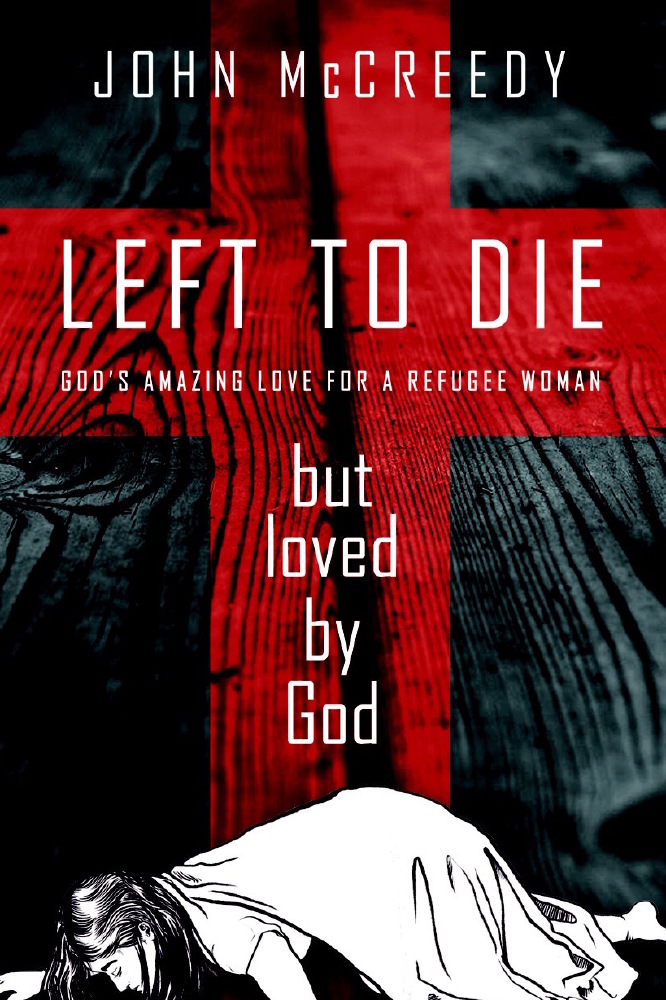By John McCreedy, author of Left to Die, But Loved By God

John McCreedy
The world has become a hostile, violent and extreme place, especially this year.
The ongoing refugee crisis, the post-Brexit referendum spike in racism, and major terrorist attacks in Brussels, Paris, Nice and Germany during the first half of 2016 have left us feeling more traumatised and polarised than ever.
Sadly, history does not appear to have taught us anything. Namely, that religious prejudice and racism is a constant curse on civilisation.
Though in times of pressure it is easy to revert to a 'scapegoat' mentality, rejection of social groups and hatred for other cultures and religions leads only to a breakdown in our society and produces economic catastrophes and religious wars which can last for years.
Northern Ireland, the Middle East and many countries in Africa are examples of outright failure in the art of human relationships and cultural and religious tolerance.
Of course, in recent years, progress has been made in Northern Ireland with the Peace Process and in the Middle East, yet the fact is peace is still not a reality in these regions.
During Hilary Clinton's recent address, where she accepted the nominee of the Democratic Party to challenge for the position of US President, she stated: "If we cannot work together, we will not rise together"
Her words pinpoint the root cause of much of the trouble in our world at present. The greatest need today is indeed for individuals and nations to rise up in unity, learning to live together in peace and accept each other's differences while remembering our fundamental similarities.
As a former missionary and church pastor, I have encountered many people who, for one reason or another, are victims of prejudice and exclusion. These include refugees, victims of racism as well as the homeless.
Whether you are a Christian or not, the Bible can still teach us many important lessons on how we can ultimately triumph over the humanitarian issues that refuse to go away.
In particular, it is the story of the biblical heroine Hagar that I believe speaks loudest to our modern era. Her story may be an ancient one, but her message is as powerful as ever.
Hagar's life as a slave in the Old Testament book of Genesis addresses many of the major social issues and religious complexities we are currently facing and calls on people to examine their own actions and attitudes to jointly build a better, more harmonious future.
Hagar, an Egyptian, was treated as an outsider by biblical patriarch Abraham and his wife Sarah, whom she served as a handmaiden.
She was banished from their camp and left to die in the desert along with her teenage son, Ishmael. This cruel abandonment and mistreatment is similar to that of today's victims of prejudice and drives home the need for tolerance and understanding.
The name Hagar roughly translates from Hebrew as "one who seeks refuge" and her narrative raises timely questions about such issues as the ongoing refugee crisis, the horrors of modern-day slavery, the plight of the homeless, and racial or religious intolerance.
So how can we help? Each one of us is responsible for our neighbours, be they within the same community or on the other side of the world.
Like God, who saved Hagar from the desert, we must be aware of others' suffering and care enough to reach out and offer assistance.
For example, if you see a work colleague suffering prejudice then have the courage to speak out. Similarly, give to charities that do important work to help the most vulnerable.
But, most importantly, reflect on what is happening in the world and consider what it would feel like if the shoe was on the other foot. If you harbour any forms of prejudice, now is the time to address it.
It is only by us tackling bigotry whenever witnessed, be it standing up for victims of racism, Islamophobia, homophobia or sexism, that the bigger issues will be resolved.
Hagar's voice is no longer a desperate one seeking food, shelter and survival; instead, it's a victorious one with a message of love and hope for the world. Her remarkable life reminds us that, even in our own uncertain times, there is always an answer in even the most isolated and broken of places.
John McCreedy is a former journalist and well-known broadcaster in Northern Ireland, appearing on programmes including BBC Northern Ireland current affairs show Newsline and religious affairs radio show Sunday Sequence. After 15 years in the media, he entered full-time ministry and moved to Romania as a missionary, spending almost a decade in the poverty-stricken country running a church and children's home with his wife.

His new book, Left to Die, But Loved By God (Malcolm Down Publishing) is out now, priced £8.99 in paperback. Film and international publishing rights are currently being negotiated in North America, Europe and Australia by global agency MV Worldwide. Visit www.johnmccreedy.co.uk

